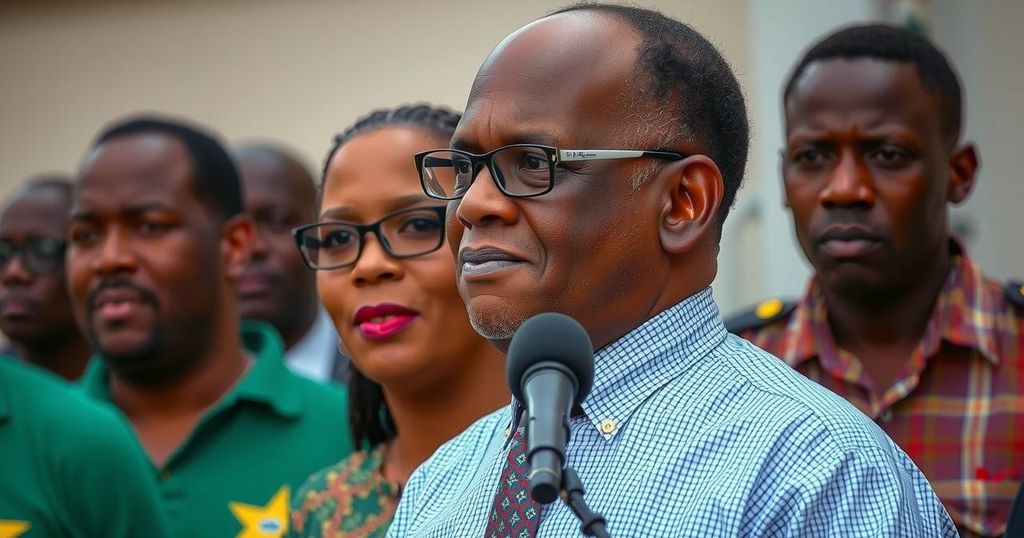Mozambique’s Post-Election Crisis: Challenges for President Chapo
Mozambique’s President-elect Daniel Chapo faces a daunting challenge in resolving the country’s ongoing post-election crisis. The Constitutional Council declared him victorious in the disputed elections, but protests have erupted following the announcement, fueled by accusations of electoral fraud by opposition leader Venancio Mondlane. Any compromise Chapo seeks with Mondlane may instigate conflict within the ruling party, jeopardizing stability and economic activity.
Mozambique’s newly elected President, Daniel Chapo, is confronted with a challenging environment in his efforts to address the escalating post-election crisis. This turmoil threatens to disrupt both economic functions and regional trade dynamics, thereby incentivizing Chapo to seek a resolution with opposition leader Venancio Mondlane. However, any agreement may incite conflicts within the ruling Frelimo party, complicating the situation further. On December 23, the Constitutional Council sanctioned Chapo’s victory in the contentious October 9 elections, where he outperformed Mondlane, who has vehemently criticized the election process. Following this determination, President Chapo has proposed a reconciliation initiative aimed at fostering dialogue post-inauguration on January 15. Despite these efforts, unrest has resumed, with Mondlane’s supporters mobilizing once more in response to a perceived electoral injustice, leading to renewed protests against the government’s legitimacy.
The political landscape in Mozambique remains turbulent following the recent general elections that took place on October 9. The competing narratives regarding electoral integrity have created a deep divide between the ruling party and the opposition. The Frelimo party, in power for decades, continues to face challenges from Mondlane’s supporters, who are calling attention to allegations of electoral fraud. These tensions have significant implications for Mozambique’s socio-economic stability, which has long been fraught with challenges, including poverty and underdevelopment.
In summary, Mozambique stands at a critical juncture following the contested elections, with President Daniel Chapo needing to navigate a precarious political climate. The mounting protests led by the opposition indicate a widespread discontent among the populace concerning electoral fairness. While efforts for reconciliation may be in the offing, the risk of internal conflict within the ruling Frelimo party remains a significant concern that could further complicate the situation going forward.
Original Source: worldview.stratfor.com




Post Comment